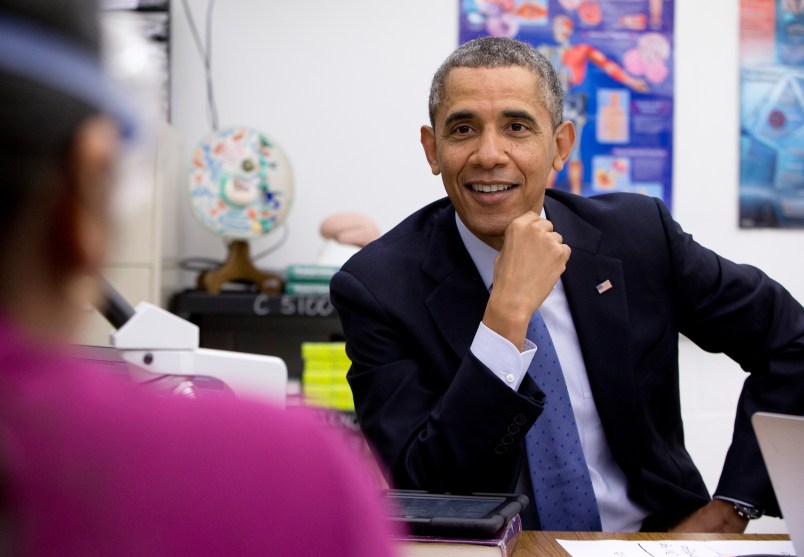The millions of dollars being spent in televisions ads that criticize Obamacare might have actually backfired and led to increased enrollment under the health care reform law, according to a study published Wednesday by the Brookings Institution.
Brookings fellow Niam Yaraghi observed “a positive association between the anti-ACA spending and ACA enrollment.” Spending on negative Obamacare ads has outpaced spending on positive ads 15 to 1, according to media research. In Senate races where Democrats are running for re-election, which have been the major targets for anti-Obamacare ads, Yaraghi detected a spike in enrollment.
“This implies that anti-ACA ads may unintentionally increase the public awareness about the existence of a governmentally subsidized service and its benefits for the uninsured,” Yaraghi wrote of his findings.
The results weren’t perfectly clear-cut. In states where it’s a Republican defending their Senate seat, negative ads did seem to lead to a reduction in enrollment, according to Yaraghi. But anti-Obamacare ad spending has been heavier in general in states with a Democratic incumbent.
The Brookings analysis accounted only for the 8 million people who enrolled in private coverage under Obamacare, although Yaraghi said he also controlled for other state factors like low-income population and average insurance premiums.
Aside from general increased awareness, Yaraghi had an interesting alternative or secondary theory for the phenomenon he observed:
On the other hand, an individual’s prediction about the chances of repealing the ACA may be associated with the volume of advertisements against it. In the states where more anti-ACA ads are aired, residents were on average more likely to believe that Congress will repeal the ACA in the near future. People who believe that subsidized health insurance may soon disappear could have a greater willingness to take advantage of this one time opportunity.
The chart below documents Yaraghi’s findings, courtesy of the Brookings Institution.








Perhaps proving the old adage: any publicity is good publicity.
I’d like to see a p-value on those lines. Looks like no relationship to me and the Republican line is being driven by an outlier. The wonderful world of social science regressions.
No such thing as bad publicity.
“In states where it’s a Republican defending their Senate seat, negative ads did seem to lead to a reduction in enrollment”
I have to question the validity just based on that one statement. There are only two states where republicans are actively defending their seats…Kentucky and Georgia. And everything I hear and read from Kentucky indicates that they had huge success in enrollment.
Secondly, we are just now entering the general election cycle. (Georgia is still waiting to hold the run off from the republican primary, for example). So the big anti Obamacare expenditure wasn’t supposed to really kick in till August-Oct.
Personally, I don’t think Obamacare is going to be the central topic of many campaigns, certainly not any of the Senate campaigns.
…and as Oscar Wilde said, “The only thing worse than being talked about is not being talked about.”